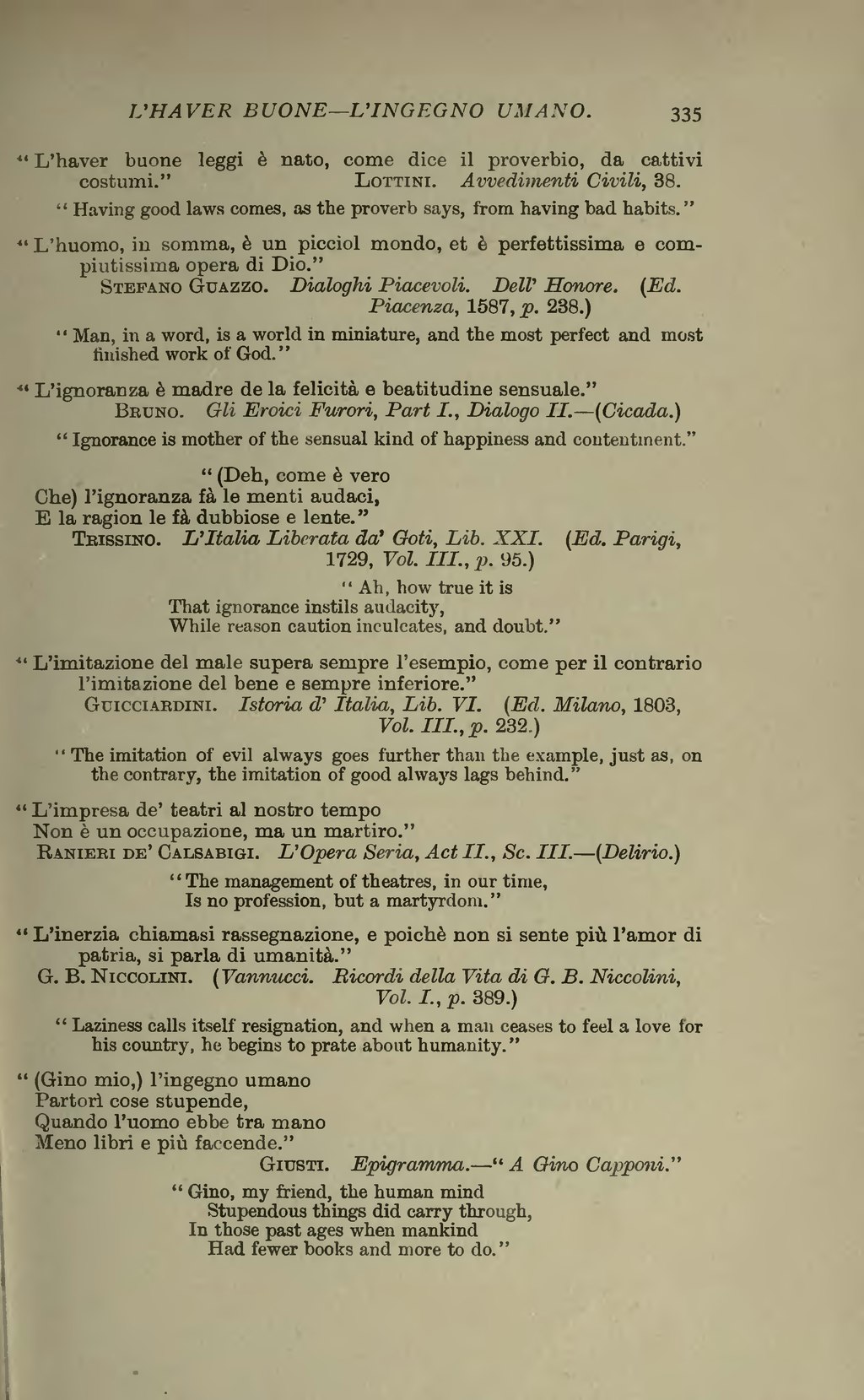“L’haver buone leggi è nato, come dice il proverbio, da cattivi costumi.”
“Having good laws comes, as the proverb says, from having bad habits.”
“L’huomo, in somma, è un picciol mondo, et è perfettissima e compiutissima opera di Dio.”
“Man, in a word, is a world in miniature, and the most perfect and most finished work of God.”
“L’ignoranza è madre de la felicita e beatitudine sensuale.”
“Ignorance is mother of the sensual kind of happiness and couteutinent.”
“(Deh, come è vero
Che) rignoranza fa le menti audaci,
E la ragion le fé dubbiose e lente.”
“Ah, how true it is
That ignorance instils audacity,
While reason caution inculcates, and doubt.”
“L’imitazione del male supera sempre l’esempio, come per il contrario
l’imitazione del bene e sempre inferiore.”
“The imitation of evil always goes further than the e.xample, just as, on
the contrary, the imitation of good always lags behind.”
“L’impresa de’ teatri al nostro tempo
Non e un occupazione, m.a un martiro.”
Ranieri de’ Calsabigi. L’ Opera Seria, Act II., Sc. III.—(Delirio.)
“The management of theatres, in our time,
Is no profession, but a martyrdom.”
“L’inerzia chiamasi rassegnazione, e poichè non si sente pii!i l’amor di
patria, si parla di umanita.”
G. B. NiccoLiNi. (Vannucci. Bicordi della Vita di G. B. Niccolini, Vol. I., p. 389.)
“Laziness calls itself resignation, and when a man ceases to feel a love for his country, he begins to prate about humanity.”
“(Gino mio,) l’ingegno umano
Partori cose stupende,
Quando l’uomo ebbe tra mano
Meno libri e più faecende.”
GiusTi. Epigramma.—" A Gino Cajjponi.”
“Gino, my friend, the human mind
Stupendous things did carry through,
In those past ages when mankind
Had fewer books and more to do.”

